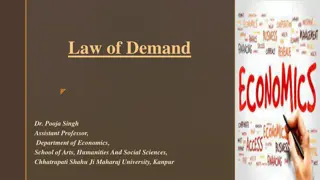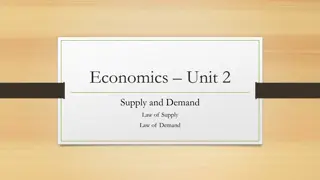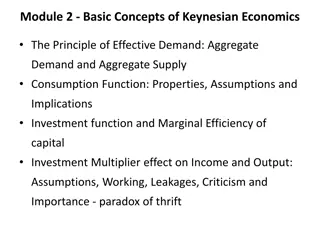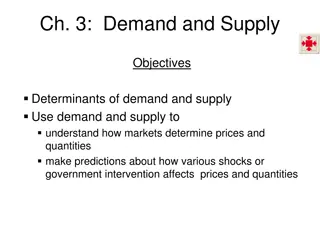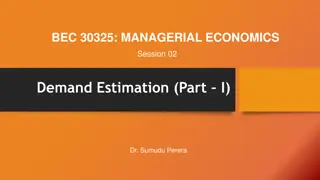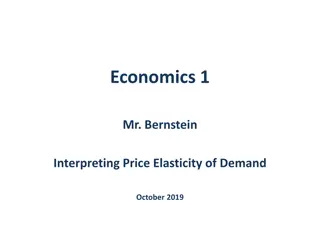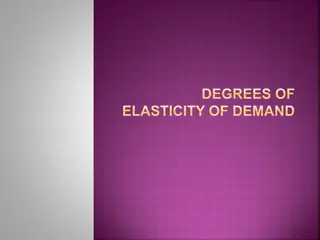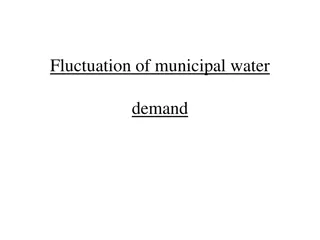Understanding the Law of Demand in Economics
The law of demand in economics states that the prices of goods or services and their quantity demanded are inversely related when other factors remain constant. When the price of a product increases, its demand falls, and when the price decreases, demand increases due to diminishing marginal utility. Various exceptions and assumptions impact the applicability of this economic principle.
Download Presentation

Please find below an Image/Link to download the presentation.
The content on the website is provided AS IS for your information and personal use only. It may not be sold, licensed, or shared on other websites without obtaining consent from the author. Download presentation by click this link. If you encounter any issues during the download, it is possible that the publisher has removed the file from their server.
E N D
Presentation Transcript
The law of demand is the concept of economics. The prices of the goods or services and their quantity demanded are inversely related when the other factors remain constant. In other words, when the price of any product increases, then its demand will fall, and when its price decreases, its demand will increase in the market. This happens because of the concept of the diminishing marginal utility which states marginal utility of the goods or service declines when there is an increase in its available supply, i.e., the consumer uses first units of good purchased to serve their need which they think is most urgent over the less urgent demands in their behavior.
There are certain exceptions of the law of demand which include war, depression, demonstration effect, ignorance effect, and necessities of life. Along with the exceptions, there are certain assumptions of the law of demand without which the concept of law of demand would not hold true. Giffen paradox, speculation,
These assumptions are No change in consumer s tastes and preferences. No change in the prices of the other products. No change in the size of the population. No expectation for the change in the prices in the future. Consumer income remains constant. No substitute for the product is there. Consumer habits should remain the same and should not change.













